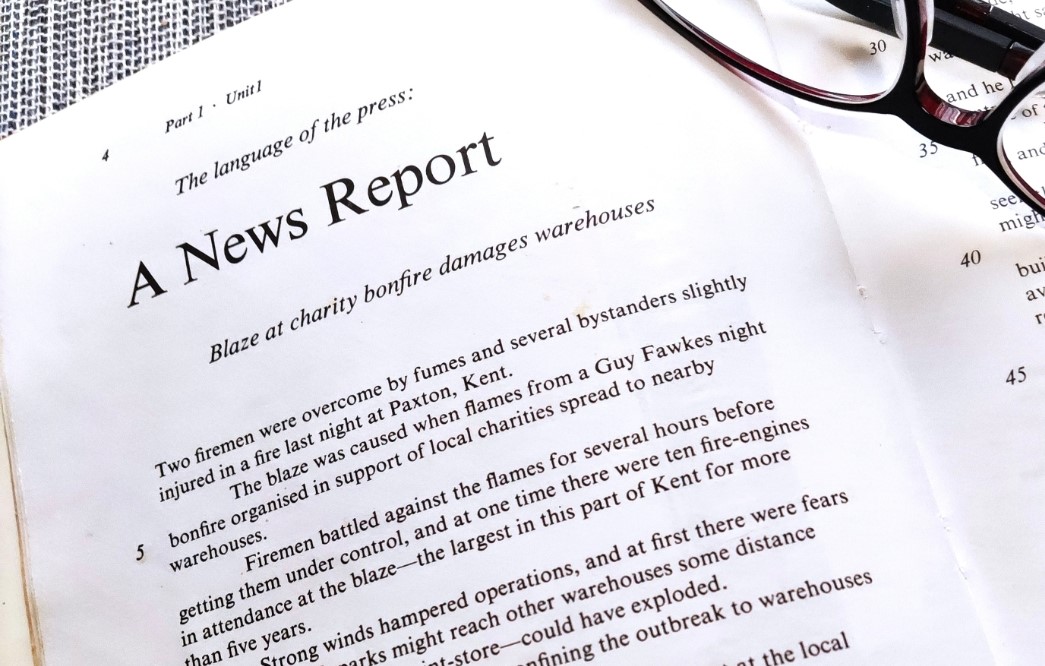英語のネイティブが多用するわりに日本人があまり使わない言い回しというものがある。
過去の習慣を表す used to や would もその例だが、同じ過去の習慣を表すのにその違いと使い方が難しいと感じることが多い。
しかし、この二つの表現方法は英語のネイティブがよく使うので違いと使い方には早い段階で慣れておくに限る。
詳細は本文に譲るが、実はこの二つの表現方法には是非理解しておかなければならない明確な違いが二つある。
この記事ではまずはこの点を明確に解説し、音声付きの例文で読者がその感覚に慣れることを目指す。
音声を聴きながら何度でも繰り返しができるので是非役立てて頂ければいいかと思う。
さらに、used to ~「以前は~したものだ」と似ている be used to ~「~に慣れている」 の表現にも言及する。
used to, would の後に続く動詞の違い
まず明確な違いの一つ目は以下のとおり。
・used to の後には be動詞あるいは一般動詞が続く。
・would の後には一般動詞しか続かない。
まずはウオーミングアップでそれぞれに3例文ずつ載せる。
used to + be動詞 or 一般動詞

There used to be a park here where I played on a swing as a child.「子供の頃ブランコでよく遊んだ公園がここにあったんだよ」
注)used to の発音記号は [juːstu]「ユーストゥー」となる。ただし、普通の会話ではここの音声で表現しているように [juːstə]「ユースタ」のように聴こえる。

I used to go to the gym until last year.「去年までそのジムに通ってたのよ。」

We used to study English together at school.「私たちは学校で一緒に英語を勉強してた。」
would + 一般動詞の例文
would を正確に発音したゆっくりペースの音声と短縮形 ‘d にした場合の実際のスピードの音声を両方載せる。

I would sit and wait here when I dated with my girl friend.「ガールフレンドとデートの時はここに座って待ったもんだよ。」

I would come to this beach in summer when I was a child, too.「子供の頃も夏になるとこのビーチに来てたわ。」

My mom would cook her signature dish every time I came back home.「家に帰るたびにお母さんは自慢料理を作ってくれたもんだ。」
used to と would の意味の違い
同じように過去の習慣を表すと言われるuse to と would だが、明確な違いの二つ目は
・used to は現在は既にそうではない過去の状態、あるいはやめてしまった過去の習慣を表す。
・would は意志を持って断続的に行った過去の行為や動作を表す。現在も継続しているかはわからない。
以下、例文と音声で解説する。
used to は現在は既にそうではない過去の状態、あるいはやめてしまった過去の習慣を表す。

We used to be happy for a while after we got married.「結婚してしばらくは幸せだったんだけどね。」→今は幸せではない。

We used to live in Tokyo until a couple of years ago.「ニ三年前まで東京に住んでいました。」→今は住んでいない。

I used to be able to speak good French when I was young.「若い頃はフランス語を巧く話せたんだけど。」→今は巧く話せない。

Also, you used to drink a lot of French wine everyday.「それに、あなた毎日フランスワインをたくさん飲んでたわね。」→今は飲んでない。
used to の否定形と疑問形
Cambridge Dictionary(ケンブリッジ英語辞典)にはこう書いてある。
The negative of used to is most commonly didn’t use(d) to. Sometimes we write it with a final -d, sometimes not. Both forms are common, but many people consider the form with the final -d to be incorrect, and you should not use it in exams.
「used to の否定形は didn’t use(d) to が広く使われている。最後の d を付けて書くこともあれば付けないで書くこともある。どちらの形も一般的ではあるが、多くの人は最後の d を伴なう形は間違いだと考えている。従って、試験などでは d を付けた形は使わない方がいい。」
ということで、現在一般的に使われている used to の否定形は didn’t used to か didn’t use to ということになるが、フォーマルな文章などでは didn’t use to を使うべき。

I didn’t used to be a cat person.「俺猫好きじゃなかったんだけどな。」

I didn’t use to be one, either.「私もそうじゃなかったのよ。」
注)この場合「私も~」ということを強調するので I の抑揚が多少高くなることに注意。
また、これはイギリスで使われた古い否定形だが used not to という言い方もある。現代英語ではまず使われない。知識として知っておけばいい。知らなくてもいい。

Your highness, I used not to know how to read.「殿下、私は以前は字が読めませんでした。」
以上で used to の否定形は理解できたと思うが、類推することで疑問形は理解できる。

Did you used to speak Italian?「イタリア語話していたの?」

Yeah, I did. I used to flirt with Italian girls in Italian.「うん、イタリア語でイタリアの女の子口説いてたよ。」

Didn’t you use to be a whiskey lover?「あなたってウイスキー党じゃなかったっけ?」

I did. But I’m a wine addict now.「だったさ。今はワイン中毒だけど。」
would は意志を持って断続的に行った過去の行為や動作を表す。現在も継続しているかはわからない。
would は used to が継続的なのに比べ断続的な過去の行為や動作を表す、また、その行為や動作が現在も続いているかどうかはわからない。
これを頭に入れて次の例文を練習してほしい。それぞれ would を正確に発音した場合と ‘d の形で短縮した場合の音声を入れる。

I would often make a pass at Jenny at school.「学校ではよくジェニーにモーションかけたものだよ。」

You would often say the same thing.「あなた同じことよく言ってたわよね。」

She would often spend her time chatting with me.「彼女はよく俺とおしゃべりして時間を潰したものさ。」
注)過去の習慣を表す would を使う文は肯定文のみ。否定形や疑問形はない。
例えば、She would not hang out with other guys. は「彼女(誘っても)他の男とは遊びに行かないわよ。」という仮定法になる。

She would not hang out with other guys.「彼女(誘っても)他の男
とは遊びに行かないわよ。」
以上のように、would にはその意味上 often(しばしば)が付くことが多い。 また、続くのが一般動詞なのである程度の意志や意図がある。
過去によく起きたことややったことを懐かしむ場合はこの would often が最適な表現と言える。
注)この場合の would に続く動詞は行為や動作を表す一般動詞なので be動詞 が続かないだけでなく、状態を表す like なども続かない。
✖ would be
✖ would like
used to は客観的 would は主体的
would はそもそも意志を表す will の過去形。なので、ある程度意志や意図を伴なう表現であるのはそれが理由だ。
つまり、過去の断続的に行った行為や意図 would do の表現は主体的な表現と言える。
これに比べて used to は今はそうではない過去を述べる表現なので主体的な要素はない。
つまり、used to は客観的に物事を表現する際に使う。
・used 客観的
・would 主体的(will=意志)
We used to go fishing like crazy.「俺たち馬鹿みたいに釣りに行ったよな。」は今はしていない過去のことを述べたに過ぎない。
We would go fishing like crazy.「俺たち馬鹿みたいに釣りに行ったよな。」は「馬鹿みたいに行った」に焦点が当たった表現。
be used to と would のまとめ
【used to】
・be動詞か一般動詞が続く。
・今はそうでない過去の継続的な状態や習慣や行為を表す。
・否定形は didn’t use(d) to となる。
・疑問形は Did 主語 use(d) to …. ?となる。
・過去に関する客観的な表現。
【would】
・行為や動作を示す一般動詞が続く。
・意志や意図を伴なう過去の断続的な行為を表す。
・否定形や疑問形はない。
・過去に関する主体的な表現。
be used to ~「~に慣れている」 について
・be used to ~「~に慣れている」の例文。

Are you used to the taste of Japanese food?「和食の味には慣れてますか?」

I am used to customers’ complaints.「お客様の苦情には慣れてます。」

He is used to dealing with complainers.「彼はクレーマーの扱いに慣れている。」
・get used to ~「~に慣れてくる」の例文

Are you getting used to how to handle the machine.「その機械の扱い方に慣れてきたかな?」

I am still not getting used to waking up early.「まだ早起きするのに慣れないわ。」

All of us have finally got used to the new system.「みんなやっと新しいシステムに慣れた。」
・文中にある be(get) used to の例文

It will take some time to get used to it.「それに慣れるにはある程度時間が掛かるよ。」

How do you think they could get used to it so soon?「なんで彼らそんなに早くそれに慣れることできたんだろうね?」

The thing is how well you are used to the operation.「問題は君がどのくらいその手術に慣れてるかということだ。」
注)be used to ~「~に慣れている」の to は前置詞。つまり、この to の後には名詞や動名詞が続くのは例文にある通り。
しかし、be used to do ~「~するために使われる」の to は to 不定詞の to。

This knife is used to cut meat.「このナイフは肉を切るのに使われます。」
注)この場合の used の発音は [juːzd] となる。あえてカタカナにすれば「ユーズドゥ」
used to の場合は [juːstə]。これもあえてカタカナにすれば「ユースタ」となる。

コメント